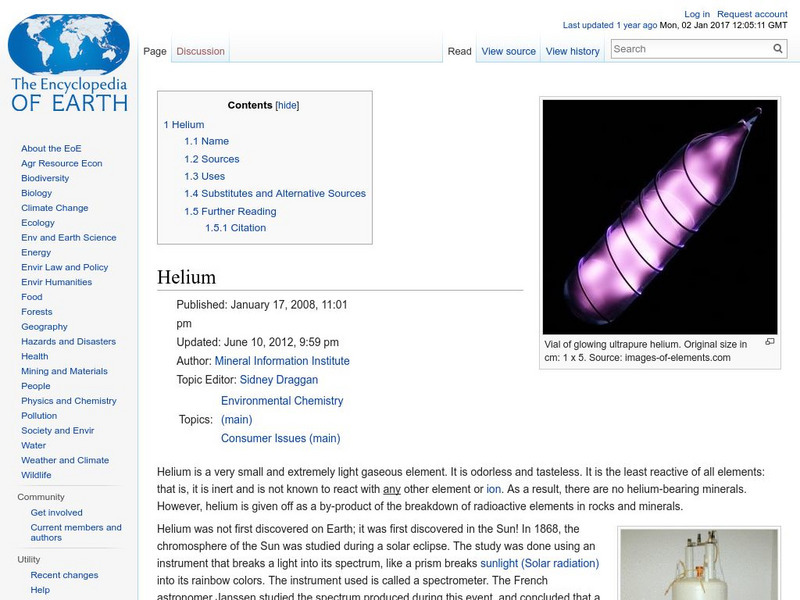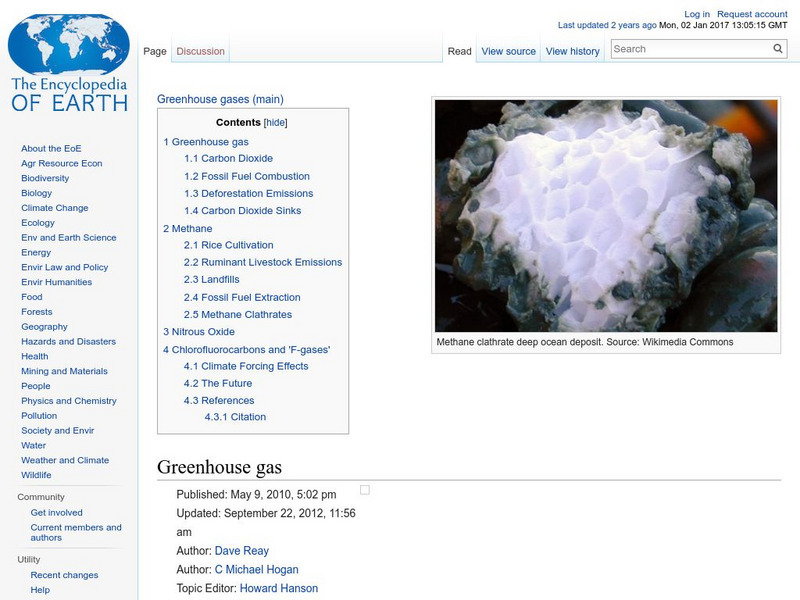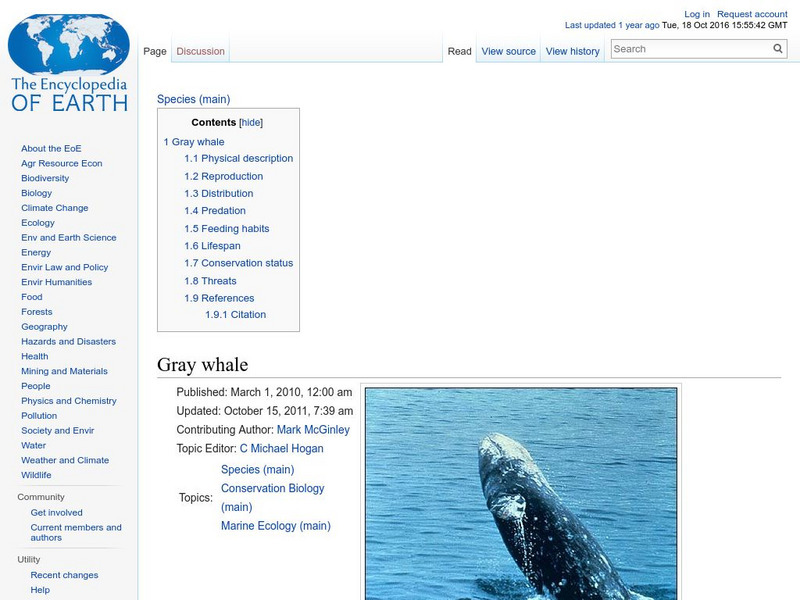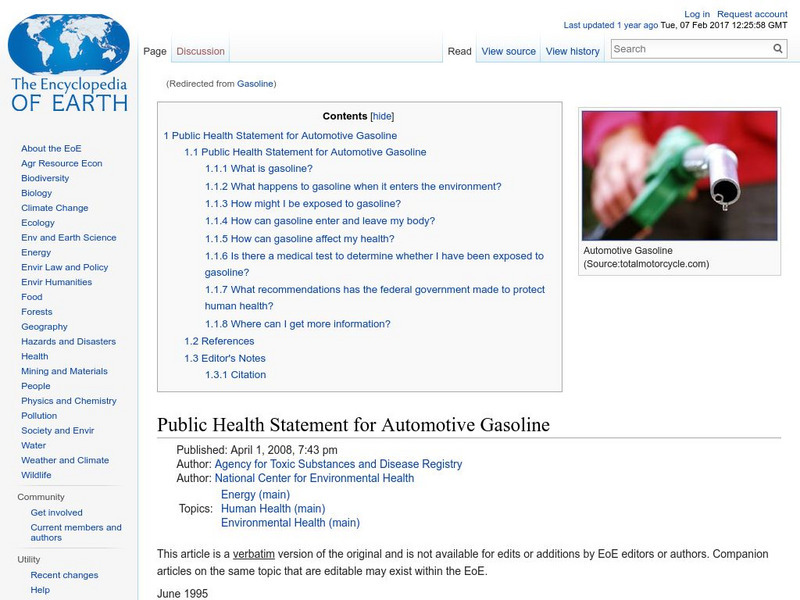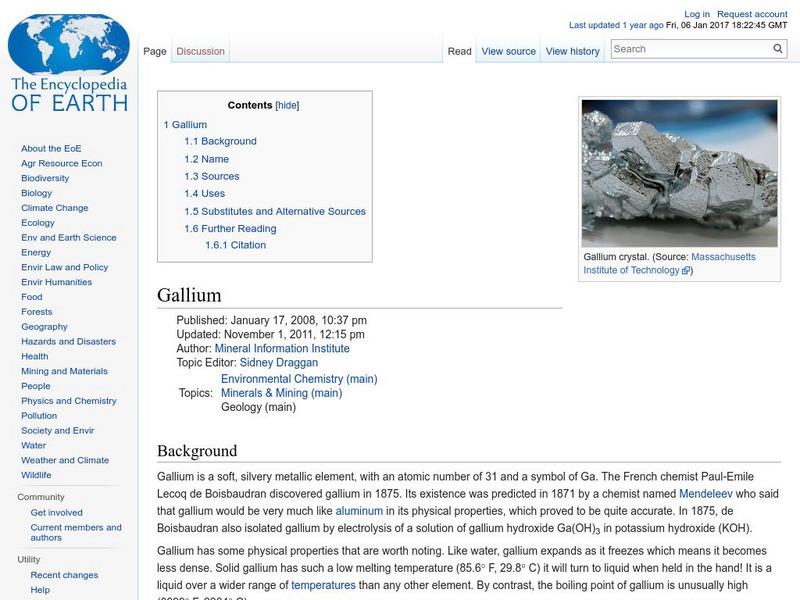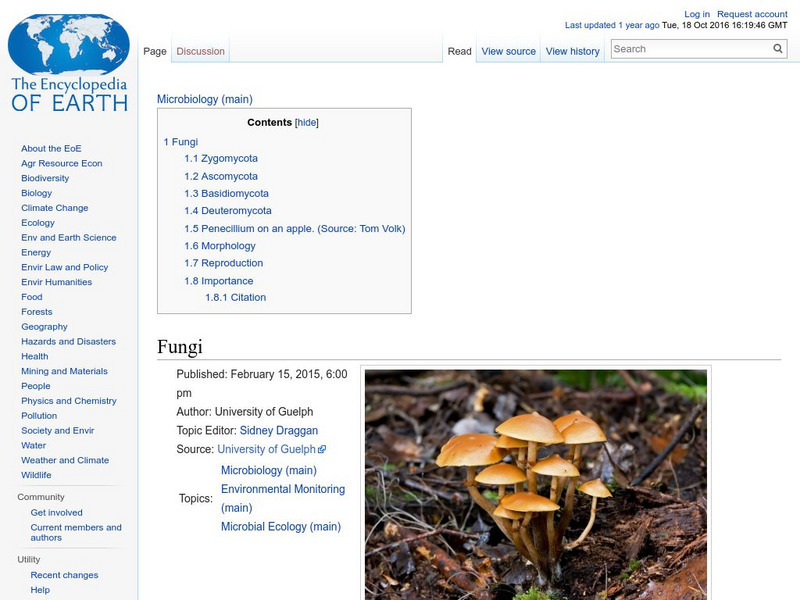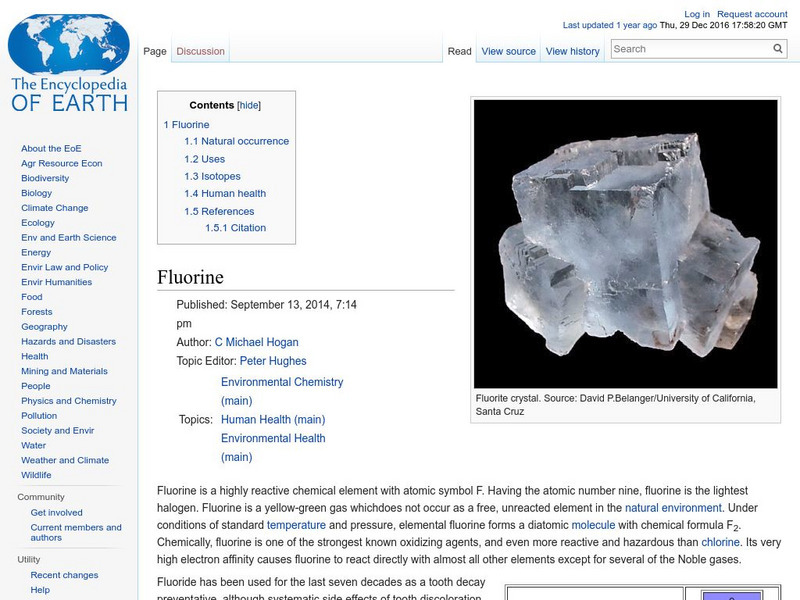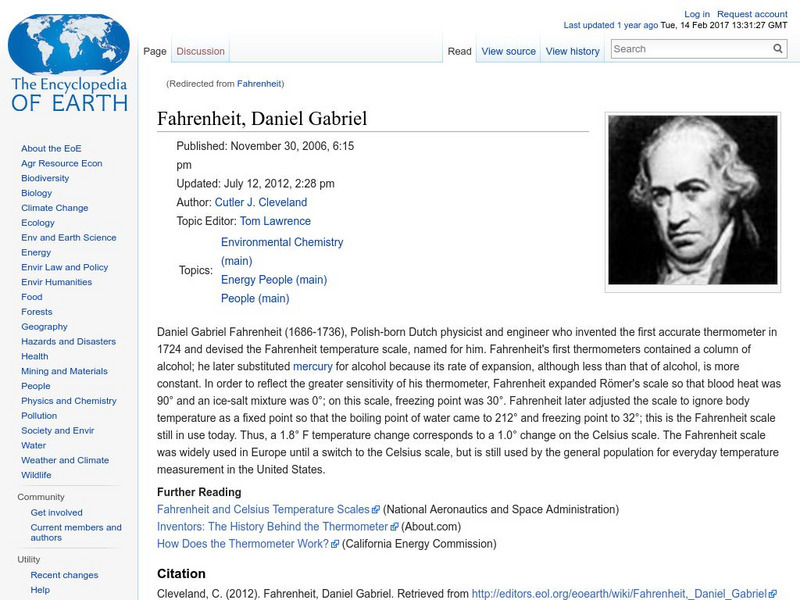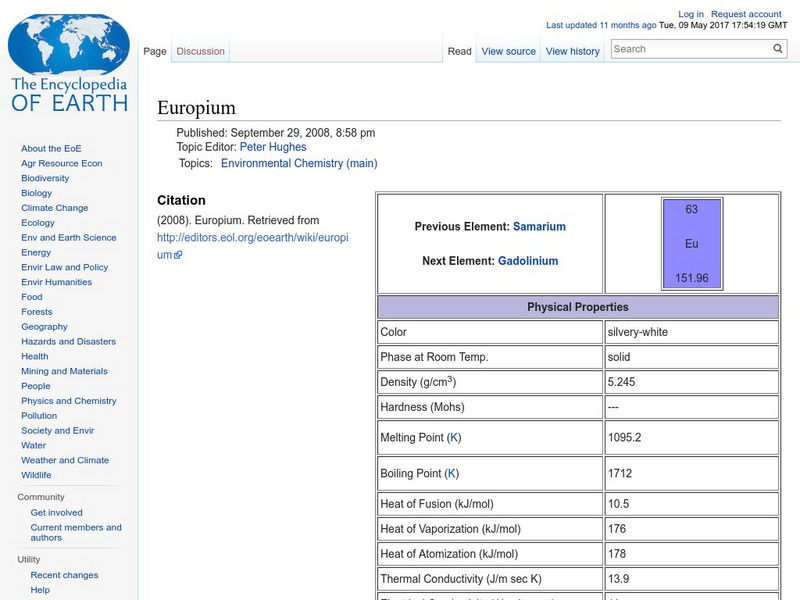Encyclopedia of Earth
Encyclopedia of Earth: Physics & Chemistry: Hydrocarbon
Explains what hydrocarbons are, the different types, and their molecular configurations. (Published: October 19, 2006)
Encyclopedia of Earth
Encyclopedia of Earth: Ecotoxicology: Herbicide
Definition of herbicides, how they are used, their damage to the environment and to ecology, consequences to human health, use around the world, and the three classes of herbicides.
Encyclopedia of Earth
Encyclopedia of Earth: Helium
Information about the element, Helium, atomic number 2. Covers its discovery, physical and atomic properties, how abundant it is on the Earth, its uses, possible substitutes, and permissible exposure limits.
Encyclopedia of Earth
Encyclopedia of Earth: Toxicology: Heavy Metal
Defines heavy metals, describes physical and chemical properties, discusses how heavy metals find their way into plants and animals, and the negative impact they have.
Encyclopedia of Earth
Encyclopedia of Earth: Health Effects of Light Pollution
Article discusses the impact of light pollution on the health of human beings as well as on plants and wildlife. (Updated July 18, 2012)
Encyclopedia of Earth
Encyclopedia of Earth: Physics & Chemistry: Halocarbon
Article explaining what halocarbons are, where they occur in nature as well as man-made sources, how they are used, and their negative environmental impact. (Published: October 28, 2011)
Encyclopedia of Earth
Encyclopedia of Earth: Species: Gymnosperm
Article explaining what a gymnosperm is, and its origin in the Carboniferous Period. It covers taxonomy, distribution, and types of gymnosperms and how they reproduce. (Published: March 24, 2010)
Encyclopedia of Earth
Encyclopedia of Earth: Oceans and Seas: Gulf of St. Lawrence
Detailed information about the hydrology and the geography of the Gulf of St. Lawrence. Discusses water quality, aquatic species, and some of the ecoregions that surround the St. Lawrence Seaway, including lowlands and forests....
Encyclopedia of Earth
Encyclopedia of Earth: Ocean Oil: Gulf of Mexico
A collection of articles and video dealing with the Gulf of Mexico.
Encyclopedia of Earth
Encyclopedia of Earth: Greenhouse Gas
Explains what greenhouse gas is, how the greenhouse effect works, and the history of fossil fuel combustion. Causes of other damaging greenhouse gases, including methane, nitrous oxide, chlorofluoracarbons, hydrofluorocarbons, and...
Encyclopedia of Earth
Encyclopedia of Earth: Biomes: Great Victoria Desert
Describes the geography of the Great Victoria Desert in Australia, its biodiversity, conservation status, and the types of threats to its biodiversity that it faces.
Encyclopedia of Earth
Encyclopedia of Earth: Zoology: Gray Whale
Information about the gray whale: physical characteristics, behavior, reproduction, distribution, threats, species survival status, etc. (Published March 1, 2010)
Encyclopedia of Earth
Encyclopedia of Earth: Gold
Information about the element, Gold, atomic number 79. Covers its unique physical properties, its atomic properties, how abundant it is on the Earth, sources, uses, and potential substitutes.
Encyclopedia of Earth
Encyclopedia of Earth: Ornithology: Gentoo Penguin
Information about the Gentoo penguin: physical characteristics, behavior, reproduction, diet, distribution, threats to survival, conservation status, etc. (Published April 24, 2010)
Encyclopedia of Earth
Encyclopedia of Earth: Evolutionary Biology: Epigenetics: The Science of Change
Article discusses the science of epigenetics, where gene activity can be changed by factors other than genetic code, for example, by environmental pollutants. (Published: August 22, 2011)
Encyclopedia of Earth
Encyclopedia of Earth: Petroleum: Gasoline
Explains what gasoline is and the different terms used for it, describes how it is produced, and what effects different properties of a gasoline can have on its performance. Also discusses how the composition of gasoline varies depending...
Encyclopedia of Earth
Encyclopedia of Earth: Gallium
Information about the metallic element, Gallium, atomic number 31. Covers its discovery, its physical and atomic properties, sources, uses, how abundant it is on the Earth, and permissible exposure limits.
Encyclopedia of Earth
Encyclopedia of Earth: Microbiology: Fungi
Explains what fungi are, the different classification groups, their morphology, how they reproduce, and their important place in the biological world. (Published: December 23, 2008)
Encyclopedia of Earth
Encyclopedia of Earth: Fluorine
Information about the element, Fluorine, atomic number 9. Covers physical and atomic properties, how abundant it is on the Earth, and permissible exposure limits. Also discusses uses, isotopes, and health concerns.
Encyclopedia of Earth
Encyclopedia of Earth: Biodiversity: Fern
Explains what differentiates ferns from other plants, their physical characteristics, taxonomy, life cycle, how they evolved, and where they occur.
Encyclopedia of Earth
Encyclopedia of Earth: Fahrenheit, Daniel Gabriel
Explains the origin of the Fahrenheit temperature scale.
Encyclopedia of Earth
Encyclopedia of Earth: Evolutionary Biology: Extremophile
Article describing some of the extreme environments where extremophile organisms can live, and giving examples from bacteria, archaea, flora, and fauna. (Published: November 26, 2010)
Encyclopedia of Earth
Encyclopedia of Earth: Evolutionary Biology: Evolution in Action
Scientific article discussing the evolutionary processes involved when an insect species splits into two other distinct species. (Published: February 28, 2011)
Encyclopedia of Earth
Encyclopedia of Earth: Europium
Information about the element, Europium, atomic number 63. Covers physical properties, atomic properties, how abundant it is on the Earth, and details about health-related regulations.




